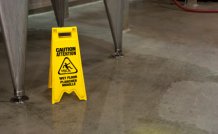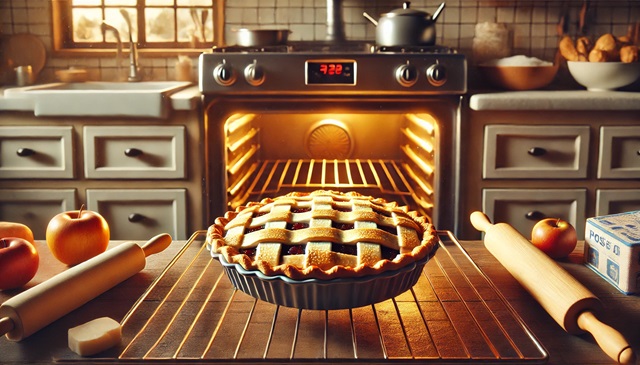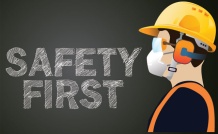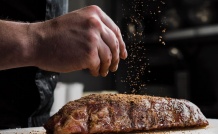Online Class: Kitchen Sanitation 101

no certificate
with CEU Certificate*
-
13Lessons
-
19Exams &
Assignments -
4Hours
average time -
0.4CEUs
Course Description
Guardians of the Plate: Ensuring Food Safety in the Modern World
The news frequently carries alarming reports of foodborne illnesses. Outbreaks involving harmful agents like salmonella, E. coli, and the infamous mad cow disease create shockwaves across nations, posing serious threats to public health. For instance, during 2008-09, an unprecedented outbreak linked to salmonella in peanut butter led to the most extensive food recall in U.S. history. Over 600 individuals fell ill, nine tragically lost their lives, and the very essence of a comforting peanut butter and jelly sandwich came under scrutiny. These incidents not only highlight the vulnerabilities of our food supply system but also underscore the profound impact of lapses in food safety protocols.
Why This Course Is Essential
In our interconnected world, food safety isn't a mere industry requirement; it's a global responsibility. This comprehensive online course ventures beyond headlines, offering an in-depth exploration into the science, best practices, and nuances of food safety:
-
Mechanisms of Contamination: Gain insights into how harmful bacteria transfer, proliferate, and lead to illnesses.
-
Best Practices in Prevention: Learn the gold standards in prevention, from hand washing techniques to pest management.
-
Kitchen Dynamics: If you're aspiring to establish or manage a restaurant, this course provides invaluable guidance on kitchen design and planning.
Detailed Course Breakdown:
-
Introduction: Set the stage for your deep dive into food safety, understanding its significance in today's world.
-
Overview of Foodborne Illnesses: Grasp the expanse and implications of foodborne diseases, from bacterial contamination to other pathogens.
-
Hand Washing: Discover the science and techniques behind effective hand hygiene – a foundational aspect of food safety.
-
Food Handling: Understand the intricacies of managing raw and cooked food items, ensuring they remain uncontaminated.
-
Temperature Control: Dive into the importance of maintaining optimal temperatures, and the tools used to monitor them.
-
Storing and Serving: Learn strategies to safely store ingredients and serve food, minimizing chances of spoilage or contamination.
-
Dishwashing: A critical component in the kitchen, explore the best practices in cleaning dishes and utensils.
-
Cleaning Practices (Facility Sanitation): Uncover the methods to maintain pristine kitchen environments, from daily cleaning schedules to deep cleaning routines.
-
Employee Health/Cleanliness/Hygiene: Learn the importance of staff health and hygiene, and protocols to ensure they don’t become sources of contamination.
-
Handling It All: Dishes, Knife Skills, and the Food Supply: An overarching lesson that combines various elements of the kitchen, from handling dishes to mastering knife skills.
-
Hazard Analysis and Critical Control Point Planning: Delve into this systematic preventive approach to food safety, understanding its crucial checkpoints.
-
Behind the Scenes: Setup and Relationships With the Health Department: Recognize the importance of compliance and building constructive relationships with health oversight agencies.
-
Conclusion: Reflect on your journey, understanding the responsibilities and opportunities in ensuring food safety.
Real-Life Case Studies:
-
Analyze past outbreaks, understand their causes, and discuss measures to prevent recurrence.
-
Engage in practical exercises, such as crafting an effective hand washing protocol for a busy restaurant or devising a temperature monitoring schedule.
Who Should Enroll?
-
Culinary Professionals: Whether you're a chef, kitchen manager, or restaurateur, this course will sharpen your food safety skills.
-
Food Enthusiasts and Home Cooks: Enhance your understanding of food safety, ensuring the wellbeing of your loved ones.
-
Career Changers: If you're considering a switch to the food industry, this course offers a robust introduction to its safety aspects.
In conclusion, the importance of food safety transcends industries and borders. With the ever-present challenges of global supply chains, evolving pathogens, and heightened consumer awareness, there's an imperative need for professionals who not only understand but also champion food safety. Enroll now and position yourself at the forefront of this vital discipline, safeguarding communities one plate at a time.
- Completely Online
- Self-Paced
- Printable Lessons
- Full HD Video

- 6 Months to Complete
- 24/7 Availability
- Start Anytime
- PC & Mac Compatible
- Android & iOS Friendly
- Accredited CEUs

Course Lessons
Lesson 1: Introduction
 Lesson 1 Video
Lesson 1 Video Lesson discussions: Kitchen Sanitation; Reasons for Taking this Course
Lesson discussions: Kitchen Sanitation; Reasons for Taking this Course Complete: Lesson 1 Assignment
Complete: Lesson 1 Assignment Assessment: Lesson 1 : Introduction
Assessment: Lesson 1 : Introduction
Lesson 2: Overview of Foodborne Illnesses
 Lesson 2 Video
Lesson 2 Video Lesson discussions: Foodborne Illness
Lesson discussions: Foodborne Illness Complete: Lesson 2 Assignment
Complete: Lesson 2 Assignment Assessment: Lesson 2 : Overview of Foodborne Illnesses
Assessment: Lesson 2 : Overview of Foodborne Illnesses
Lesson 3: Hand Washing
 Lesson 3 Video
Lesson 3 Video Assessment: Lesson 3 : Hand washing
Assessment: Lesson 3 : Hand washing
Lesson 4: Food Handling
 Lesson 4 Video
Lesson 4 Video Complete: Lesson 4 Assignment
Complete: Lesson 4 Assignment Assessment: Lesson 4 : Food Handling
Assessment: Lesson 4 : Food Handling
Lesson 5: Temperature Control
 Lesson 5 Video
Lesson 5 Video Assessment: Lesson 5 : Temperature Control
Assessment: Lesson 5 : Temperature Control
Lesson 6: Storing and Serving
 Lesson 6 Video
Lesson 6 Video Assessment: Lesson 6 : Storing and serving
Assessment: Lesson 6 : Storing and serving
Lesson 7: Dishwashing
 Lesson 7 Video
Lesson 7 Video Assessment: Lesson 7 : Dishwashing
Assessment: Lesson 7 : Dishwashing
Lesson 8: Cleaning Practices (Facility Sanitation)
 Lesson 8 Video
Lesson 8 Video Assessment: Lesson 8 : Cleaning practices (Facility sanitation)
Assessment: Lesson 8 : Cleaning practices (Facility sanitation)
Lesson 9: Employee Health/Cleanliness/Hygiene
 Lesson 9 Video
Lesson 9 Video Complete: Lesson 9 Assignment
Complete: Lesson 9 Assignment Assessment: Lesson 9 : Employee health/cleanliness/hygiene
Assessment: Lesson 9 : Employee health/cleanliness/hygiene
Lesson 10: Handling It All: Dishes, Knife Skills, and the Food Supply
 Lesson 10 Video
Lesson 10 Video Complete: Lesson 10 Assignment
Complete: Lesson 10 Assignment Assessment: Lesson 10 : Handling it all: Dishes, Knife Skills and the Food Supply
Assessment: Lesson 10 : Handling it all: Dishes, Knife Skills and the Food Supply
Lesson 11: Hazard Analysis and Critical Control Point Planning
 Lesson 11 Video
Lesson 11 Video Lesson discussions: Checklist
Lesson discussions: Checklist Assessment: Lesson 11 : Hazard Analysis and Critical Control Point Planning
Assessment: Lesson 11 : Hazard Analysis and Critical Control Point Planning
Lesson 12: Behind the Scenes: Setup and Relationships With the Health Department
 Lesson 12 Video
Lesson 12 Video Assessment: Lesson 12 : Behind the scenes: Setup and relationships with the Health Department
Assessment: Lesson 12 : Behind the scenes: Setup and relationships with the Health Department
Lesson 13: Conclusion
 Lesson 13 Video
Lesson 13 Video Lesson discussions: How would you rate this course?; Program Evaluation Follow-up Survey (End of Course); Course Comments
Lesson discussions: How would you rate this course?; Program Evaluation Follow-up Survey (End of Course); Course Comments Assessment: Lesson 13 : Conclusion
Assessment: Lesson 13 : Conclusion Assessment: The Final Exam
Assessment: The Final Exam
Learning Outcomes
- Describe foodborne illnesses.
- Summarize the importance of hand washing.
- Describe proper food handling techniques.
- Summarize temperature control for varying food types.
- Describe proper techniques for storing and serving.
- Summarize proper techniques for dishwashing.
- Describe cleaning practices (facility sanitation).
- Summarize employee health/cleanliness/hygiene.
- Define hazard analysis and critical control point planning.
- Demonstrate mastery of lesson content at levels of 70% or higher.
Additional Course Information

- Document Your Lifelong Learning Achievements
- Earn an Official Certificate Documenting Course Hours and CEUs
- Verify Your Certificate with a Unique Serial Number Online
- View and Share Your Certificate Online or Download/Print as PDF
- Display Your Certificate on Your Resume and Promote Your Achievements Using Social Media

Choose Your Subscription Plan
No Certificate / No CEUs
This course only
| Includes certificate | X |
| Includes CEUs | X |
| Self-paced |

|
| Instructor support |

|
| Time to complete | 6 months |
| No. of courses | 1 course |
Certificate & CEUs
This course only
| Includes certificate |

|
| Includes CEUs |

|
| Self-paced |

|
| Instructor support |

|
| Time to complete | 6 months |
| No. of courses | 1 course |
Certificates & CEUs
Includes all 600+ courses
| Includes certificate |

|
| Includes CEUs |

|
| Self-paced |

|
| Instructor support |

|
| Time to complete | 12 Months |
| No. of courses | 600+ |
Certificates & CEUs
Includes all 600+ courses
| Includes certificate |

|
| Includes CEUs |

|
| Self-paced |

|
| Instructor support |

|
| Time to complete | 24 Months |
| No. of courses | 600+ |
Student Testimonials
- "Good job by the instructor. Will recommend class to others." -- Kelley C.
- "What was most helpful was the overall flow of the lessons and material. This course was very helpful and knowledgeable." -- Phil H.
- "The sections were laid out in good order and would be extremely helpful to anyone opening a restaurant from scratch or as a take over. I thought the assignments were helpful as it made me think in more depth about each lesson." -- Richard H.
- "The instructor answered my emails quickly and was very helpful and available. Dish washing and temperature control were two very good lessons in this course. The charts were helpful as well." -- Joshua F.
Related Courses
-
 29 hours
2.9 CEUs
Human Resources Productivity Course Bundle
+ More Info
29 hours
2.9 CEUs
Human Resources Productivity Course Bundle
+ More Info
-
 13 hours
1.3 CEUs
Image Consultant
+ More Info
13 hours
1.3 CEUs
Image Consultant
+ More Info
-
 7 hours
0.7 CEUs
Spanish Culture 101
+ More Info
7 hours
0.7 CEUs
Spanish Culture 101
+ More Info
-
 5 hours
0.5 CEUs
All About Herbs
+ More Info
5 hours
0.5 CEUs
All About Herbs
+ More Info
-
 5 hours
0.5 CEUs
Workers' Compensation 101
+ More Info
5 hours
0.5 CEUs
Workers' Compensation 101
+ More Info
-
 5 hours
0.5 CEUs
Bread Baking 101
+ More Info
5 hours
0.5 CEUs
Bread Baking 101
+ More Info
-
 4 hours
0.4 CEUs
How to Bake Cookies
+ More Info
4 hours
0.4 CEUs
How to Bake Cookies
+ More Info
-
 14 hours
1.4 CEUs
Cake Decorating 101
+ More Info
14 hours
1.4 CEUs
Cake Decorating 101
+ More Info
-
 3 hours
0.3 CEUs
Spanish Cooking 101
+ More Info
3 hours
0.3 CEUs
Spanish Cooking 101
+ More Info
-
 8 hours
0.8 CEUs
Aromatherapy (Intermediate to Advanced)
+ More Info
8 hours
0.8 CEUs
Aromatherapy (Intermediate to Advanced)
+ More Info
-
 8 hours
0.8 CEUs
Tex Mex Cooking 101
+ More Info
8 hours
0.8 CEUs
Tex Mex Cooking 101
+ More Info
-
 5 hours
0.5 CEUs
Starting Your Own Cleaning Business
+ More Info
5 hours
0.5 CEUs
Starting Your Own Cleaning Business
+ More Info
-
 7 hours
0.7 CEUs
Microsoft Excel Level 2
+ More Info
7 hours
0.7 CEUs
Microsoft Excel Level 2
+ More Info
-
 7 hours
0.7 CEUs
Waiter and Waitress Training 101
+ More Info
7 hours
0.7 CEUs
Waiter and Waitress Training 101
+ More Info
-
 6 hours
0.6 CEUs
Pie Baking 101
+ More Info
6 hours
0.6 CEUs
Pie Baking 101
+ More Info
-
 5 hours
0.5 CEUs
Workplace Safety
+ More Info
5 hours
0.5 CEUs
Workplace Safety
+ More Info
-
 3 hours
0.3 CEUs
Italian Cooking 101
+ More Info
3 hours
0.3 CEUs
Italian Cooking 101
+ More Info
-
 9 hours
0.9 CEUs
Aromatherapy 101
+ More Info
9 hours
0.9 CEUs
Aromatherapy 101
+ More Info







